Our line-up check series has already taken a look at the songs from the Big 5, the Nordic countries, the former Yugoslavia and the Eastern EU nations. This week, Martin turns his attention to a category we’ve called “pre-1970”: five countries that have been part of the fabric of the Eurovision Song Contest since the very early days of the competition.
Looking back
The countries in this group – Austria, Belgium, Ireland, the Netherlands and Switzerland – have delivered some of the most legendary moments in ESC history.
“Merci cherie” by Udo Jürgens was one of the early hits to come out of the competition, but Austria has waited since 1966 for a repeat victory. Recent highlights have included Alf Poier’s unexpected 6th place in Riga in 2003, but results have largely been disappointing and, indeed, the country withdrew from the competition for three years before returning in 2011.
Despite having been part of the contest since it began back in 1956, Belgium also has just one victory to its name: Sandra Kim’s “J’aime la vie”. The bilingual nation has had decidedly mixed fortunes in the intervening 27 years, but it still has the ability to pop up at the business end of the scoreboard when the stars are in the right alignment: just ask Urban Trad and Tom Dice.
Measured in terms of victories, Ireland is the most successful country in ESC history. Their winners include pan-European hits by Dana (“All Kinds Of Everything”) and Johnny Logan (“What’s Another Year?” and “Hold Me Now”), but also four victories during a five-year period in the 1990s that represented a commercial low point for the contest and arguably led to many of the changes we have seen since, not least the introduction of televoting and the withdrawal of the orchestra.
The Netherlands could hardly have a more contrasting ESC record. One of the early powerhouses of the competition, they racked up victories in 1957, 1959, 1969 and 1975. In recent times, however, their fortunes have turned for the worse: most notably, they have failed to qualify for the ESC final in their last eight attempts, despite the best efforts of fan-hyped entries from the likes of Glennis Grace, Edsilia and Joan Franka. Not even Father Abraham was able to help.
Finally, Switzerland can argue that it was responsible for launching the career of one of the biggest stars ever to come out of Eurovision. No, not Lys Assia – that’s all in her head. We are talking about Céline Dion, of course, who jetted over from Canada in 1988 to grab victory for the Alpine nation with “Ne partez pas sans moi”. Other than a couple of top five finishes in the early 1990s (and a bunch of Estonian girls with guitars in 2005), however, there has been little for Switzerland to cheer about since then.
The “pre-1970” nations in 2013
Austria propped up the semi-final scoreboard last year with Trackshittaz and their hip-hop number “Woki mit deim Popo”, so they will naturally be hoping for a better result this time round with the more conventional sounds that Natália Kelly brings to the table.
“Shine” has been selected by the producers to open the first semi-final, and it’s not hard to see why: it’s an accessible, straightforward, western-sounding pop song with an engaging enough performance. It doesn’t really develop much over its three minutes, though, and it feels less like a song that’s shooting for the stars and more like a calculated attempt to deliver a safe qualification and a Saturday night appearance. It could be a successful strategy, but it won’t bother the final scoreboard much if so.
Top 10 |
victory |
personal |
||
 |
 |
 |
Belgium broke a long-standing qualification jinx in 2010, when “Me And My Guitar” even won the first semi-final by a comfortable distance. This was followed by the near-miss of Witloof Bay and the pretty disastrous result suffered by last year’s representative, Iris. This year it’s the turn of French-language broadcaster RTBF to deliver the country’s ESC entry, and they internally selected young Roberto Bellarosa, winner of The Voice Belgique, to fly the Belgian flag in Malmö.
“Love Kills” was the winner of a low-key radio-based national final held just before Christmas. Roberto’s vocal performance that day was far from convincing, but the final studio mix of the song highlights its strengths, which include a strong chorus and a contemporary (if predictable) dubstep breakdown in the middle. The main concern remains Roberto himself, however: even when his vocals are strong, he comes across as an awkward, camera-shy performer and might not have what it takes to harness the full potential of the song. Which is a shame, because it’s very good and, in the right hands, it could do a great deal of damage on the scoreboard. Right now, though, I’d be happy (and relieved) for it just to qualify.
Top 10 |
victory |
personal |
||
 |
 |
 |
In the last two years, Ireland at Eurovision has become synonymous with Jedward, the troublesome twins who, if nothing else, injected a bit of life into the contest despite coming from a country better known for its melodic ballads. Having failed to make much of an impact last year with “Waterline” (despite having the most exciting stage prop ever) (honest), John and Edward opted not to go for a hat-trick of entries – leaving the stage clear for 27-year-old Ryan Dolan to step up and represent Ireland this year.
“Only Love Survives” is a strange song. It has elements that are quite contemporary and not entirely unpleasant to listen to, but the structure of the song is confusing, with a stop-start feel and false choruses and repeated peaks all over the place. Dolan’s vocals could be an issue, too: the Late Late Show studio that plays host to the Irish national final is notorious for its poor sound quality, but I’m more concerned about how exposed and strained a lot of the higher, longer notes will sound even with better production. (And I don’t find him to be particularly likeable as a performer, either, but that’s purely a matter of taste.) Nevertheless, if everything sits right then this could sneak into the top 10. As it stands, though, it’s probably best classified as a borderline qualifier.
Top 10 |
victory |
personal |
||
 |
 |
 |
The Netherlands are, one might argue, finally taking this Eurovision game seriously. How else can one explain the recruitment of Anouk, a singer who – even if her cross-border sales lie some years behind her – is still one of the biggest names in her home nation? Whether people fondly remember hits like “Nobody’s Wife” or not, a professional, mature and musically secure performance is guaranteed, which should come as a relief after the likes of Joan Franka and Sieneke.
“Birds” is a song that I want to like more than I actually do. But I do like it. It’s something rather different for ESC, an atmospheric, old-fashioned waltz that builds and swells slowly and majestically. The risk for me is that it will be too “difficult” to connect with the wider public – but if nothing else, this should be pure jury fodder, and it feels like everyone (right up to the level of the EBU production team) is willing the Netherlands to do well this year, so that might itself become a self-fulfilling prophecy. In any case, I can easily see this reaching the top 10 in the final with that strong jury support, though it’s too tricky to be realistically considered a winner. But let’s be honest: the Dutch flag emerging from one of those virtual envelopes on May 14th will be a victory in itself.
Top 10 |
victory |
personal |
||
 |
 |
 |
Switzerland created some of the biggest headlines this year after the public chose a band of Salvation Army members to represent the country – you can read our in-depth article from the time here. The outcome of the initial controversy was that the EBU ordered Heilsarmee to change their name and their costumes, something the group considered and ultimately accepted, so the name Takasa will now appear on-screen when the band takes the stage next month.
Unfortunately, Takasa’s entry – “You And Me” – suggests that the media storm was a lot of fuss over nothing. It’s a curious composition, trying hard to be anthemic with its singalong chorus but sticking resolutely to a minor key throughout – which, together with an incessant and frankly tiring beat, takes a lot of momentum out of the song. That would be fine if the performers were able to re-inject some life into it on stage, but they come across as a firmly personality-free zone, and I think that (as much as anything else) will be what kills their chances in Malmö.
Top 10 |
victory |
personal |
||
 |
 |
 |
The bottom line is that these stalwarts of pre-1970 Eurovision have delivered five slices of palatable mainstream pop this year – and that the vocal and visual performances will be key to their success or failure. The Netherlands seem best-placed to score well, while the others will have to fight hard to make a real impact.
You can give us your own opinion by voting in the poll on the right-hand side of our website: Which song from the “pre-1970” nations do you like best? The poll will remain open until Thursday morning.
As always, we should emphasize that the judgements on the songs are based on the personal taste of the author, and that the predictions made here might be very different to the predictions we make once the rehearsals begin!


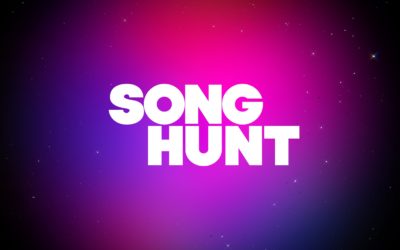
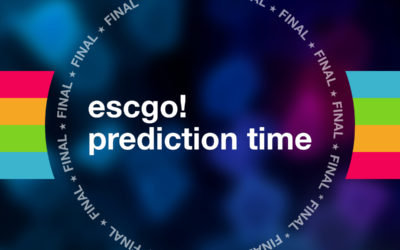
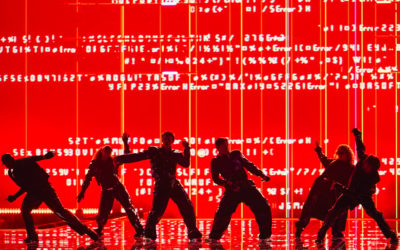
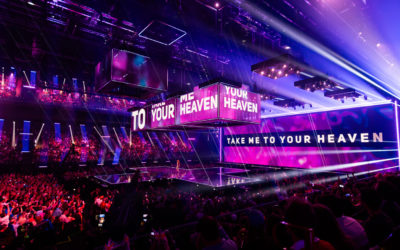
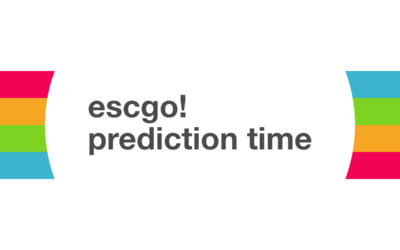
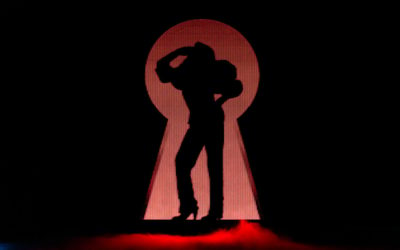




0 Comments